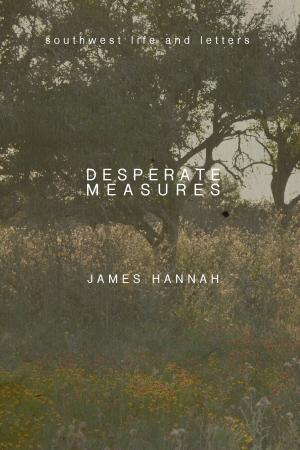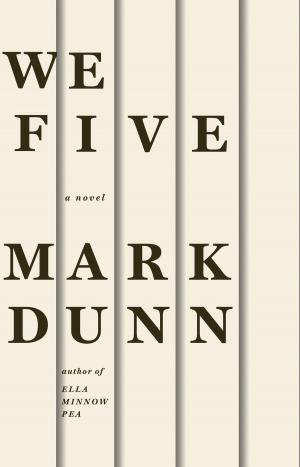| Author: | John Vernon | ISBN: | 9781941531006 |
| Publisher: | Dzanc Books | Publication: | April 24, 2015 |
| Imprint: | Dzanc Books | Language: | English |
| Author: | John Vernon |
| ISBN: | 9781941531006 |
| Publisher: | Dzanc Books |
| Publication: | April 24, 2015 |
| Imprint: | Dzanc Books |
| Language: | English |
All this began long before I died,” says the brain in a jar that narrates John Vernon’s second novel. The brain once belonged to Charles Cooper, a 55-year-old water engineer in upstate New York, and has been kept alive by a perfusion pump invented by the man who may have been Coop’s fatherCharles Lindbergh. Then again, maybe not. Coop’s suspicion that he is the kidnaped Lindbergh baby who never really died but instead was stolen as a child and raised by gangsters begins when, on a day like any other, while playing basketball with his ne’re-do-well stepson, two women approach him, one claiming to be the mother he thought long dead, the other his sister. As a rule, I’m not a paranoid man,” he says, but these persistent strangers initiate a chain of clues and strange events that open before him like a bottomless pit. His search for an identity locks him inside a labyrinth of memory, historical detective work, deceit and obsession. Is he Lindbergh’s son or the victim of an elaborate hoax designed to rob him of his inheritance? And is he deranged or rather is it reality,” as he says, that has come down with an illness.”? Lindbergh’s Son is a map of a peculiar kind of American megalomania, one whose genealogies are floating, roots shallow, and borders ever shifting.
Franz Kafka, I think, is Mr. Vernon’s true master . . . [His] story, with bits of new and old news falling into contradictory configurations, will excite those who love a mystery. It’s a dark dream, told with twin passions for intellectual process and the bizarre required by this particular dark age.” New York Times Book Review
Striking and original and never dull . . . Truly novel, truly chancy and subversive.” St. Petersburg Times
A fascinating book, full of intrigue, verbal luminosity, and mysterious thrills. Vernon’s imagination is all over the place with a virtuoso’s irreverence for standard procedures. Let the reader beware and be dazzled by this rising and unique voice in American literature.” John Nichols, author of The Milagro Beanfield War and The Sterile Cuckoo
We are soon caught up in the autobiography of this brainthe way it shifts and assimilates facts, exchanges imagination and memory, forgets to remember, anything to justify itself, to keep on going.” Washington Post Book World
Franz Kafka, I think, is Mr. Vernon’s true master . . . [His] story, with bits of new and old news falling into contradictory configurations, will excite those who love a mystery. It’s a dark dream, told with twin passions for intellectual process and the bizarre required by this particular dark age.” New York Times Book Review
Striking and original and never dull . . . Truly novel, truly chancy and subversive.” St. Petersburg Times
A fascinating book, full of intrigue, verbal luminosity, and mysterious thrills. Vernon’s imagination is all over the place with a virtuoso’s irreverence for standard procedures. Let the reader beware and be dazzled by this rising and unique voice in American literature.” John Nichols, author of The Milagro Beanfield War and The Sterile Cuckoo
We are soon caught up in the autobiography of this brainthe way it shifts and assimilates facts, exchanges imagination and memory, forgets to remember, anything to justify itself, to keep on going.” Washington Post Book World
All this began long before I died,” says the brain in a jar that narrates John Vernon’s second novel. The brain once belonged to Charles Cooper, a 55-year-old water engineer in upstate New York, and has been kept alive by a perfusion pump invented by the man who may have been Coop’s fatherCharles Lindbergh. Then again, maybe not. Coop’s suspicion that he is the kidnaped Lindbergh baby who never really died but instead was stolen as a child and raised by gangsters begins when, on a day like any other, while playing basketball with his ne’re-do-well stepson, two women approach him, one claiming to be the mother he thought long dead, the other his sister. As a rule, I’m not a paranoid man,” he says, but these persistent strangers initiate a chain of clues and strange events that open before him like a bottomless pit. His search for an identity locks him inside a labyrinth of memory, historical detective work, deceit and obsession. Is he Lindbergh’s son or the victim of an elaborate hoax designed to rob him of his inheritance? And is he deranged or rather is it reality,” as he says, that has come down with an illness.”? Lindbergh’s Son is a map of a peculiar kind of American megalomania, one whose genealogies are floating, roots shallow, and borders ever shifting.
Franz Kafka, I think, is Mr. Vernon’s true master . . . [His] story, with bits of new and old news falling into contradictory configurations, will excite those who love a mystery. It’s a dark dream, told with twin passions for intellectual process and the bizarre required by this particular dark age.” New York Times Book Review
Striking and original and never dull . . . Truly novel, truly chancy and subversive.” St. Petersburg Times
A fascinating book, full of intrigue, verbal luminosity, and mysterious thrills. Vernon’s imagination is all over the place with a virtuoso’s irreverence for standard procedures. Let the reader beware and be dazzled by this rising and unique voice in American literature.” John Nichols, author of The Milagro Beanfield War and The Sterile Cuckoo
We are soon caught up in the autobiography of this brainthe way it shifts and assimilates facts, exchanges imagination and memory, forgets to remember, anything to justify itself, to keep on going.” Washington Post Book World
Franz Kafka, I think, is Mr. Vernon’s true master . . . [His] story, with bits of new and old news falling into contradictory configurations, will excite those who love a mystery. It’s a dark dream, told with twin passions for intellectual process and the bizarre required by this particular dark age.” New York Times Book Review
Striking and original and never dull . . . Truly novel, truly chancy and subversive.” St. Petersburg Times
A fascinating book, full of intrigue, verbal luminosity, and mysterious thrills. Vernon’s imagination is all over the place with a virtuoso’s irreverence for standard procedures. Let the reader beware and be dazzled by this rising and unique voice in American literature.” John Nichols, author of The Milagro Beanfield War and The Sterile Cuckoo
We are soon caught up in the autobiography of this brainthe way it shifts and assimilates facts, exchanges imagination and memory, forgets to remember, anything to justify itself, to keep on going.” Washington Post Book World















